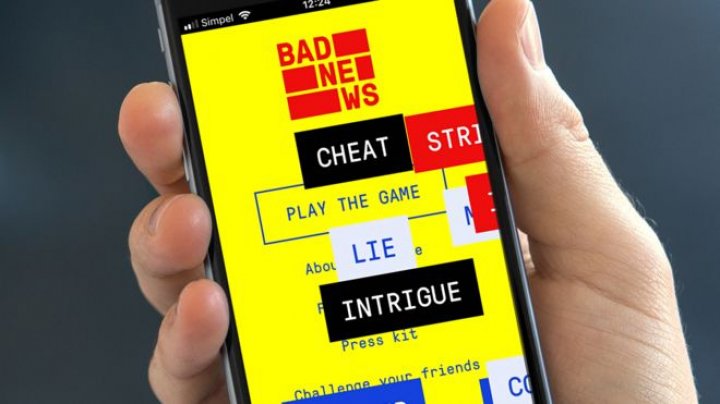“Vaccine” against fake news
June 28, 2019 | Expert Insights

Background
The rapid spread of “fake news” and online misinformation is a growing threat to the democratic process and could have serious consequences for evidence-based decision making on a variety of societal issues, ranging from climate change and vaccinations to international relations. Social media platforms have proven to be a particularly fertile breeding ground for online misinformation.
A broad array of solutions have been proposed, ranging from making digital media literacy part of school to the automated verification of rumours using machine learning to conducting fact-checks in real-time
Decades of research on human cognition finds that misinformation is not easily corrected.
Analysis
An online simulation aimed at increasing resistance to disinformation has been dubbed a “fake news vaccine” by academics. Researchers from the University of Cambridge helped launch the game, called Bad News, in which people play the role of ‘propaganda producers’. The researchers worked with Dutch research firm DROG and design agency Gusmanson to develop the game.
The browser game, which was made available to 15,000 participants, was found to help players identify real-world disinformation after its release in February 2018.
The aim of the game is to stoke fear and anger by manipulating news and social media, using techniques such as deploying Twitter bots, impersonating a trusted figure or organization, photoshopping evidence, and inciting conspiracy theories to attract followers. Players are challenged to spread disinformation without damaging their “credibility score.”
Dr. Sander van der Linden, Director of the Cambridge Social Decision-Making Lab, explained that the task before the researchers was not easy, since fake news spreads very fast and can go "deeper than the truth." "We wanted to see if we could pre-emptively debunk, or 'pre-bunk', fake news by exposing people to a weak dose of the methods used to create and spread disinformation, so they have a better understanding of how they might be deceived," shared the scientist. He called their game "a psychological vaccination." This work builds on the so-called "inoculation theory," which maintains that beliefs can be guarded against, the same way you can protect a body against diseases – by being exposed to smaller doses of them over time to build up immunity.
To see how well the participants were inoculated against fake news, they were told to rate how trustworthy various tweets and headlines were. They had to do this before and after playing the game for at least 15 minutes. The researchers discovered that the subjects were eventually able to pick out fake news better, finding them 21% less reliable after the game.
Co-author Jon Roozenbeek added: “We are hoping to create what you might call a general ‘vaccine’ against fake news, rather than trying to counter each specific conspiracy or falsehood.”
The game has been translated into nine different languages. It is also being developed for WhatsApp and has a "junior version" for children aged 8-10. The researchers hope to use that version to develop early media literacy.
Based in part on existing studies of online disinformation, and taking cues from actual conspiracy theories about organisations such as the United Nations, the game is set to be translated for countries such as Ukraine, where disinformation casts a heavy shadow. There are also plans to adapt the framework of the game for anti-radicalisation purposes, as many of the same manipulation techniques are commonly deployed by recruiters for religious extremist groups.
Assessment
Our assessment is that if legitimate facts are delivered with an "inoculation" -- a warning dose of misinformation - some of the positive influence is preserved. In other words, by exposing people to a weakened version of a misleading argument, and by pre-emptively refuting this argument, attitudinal resistance can be conferred against future deception attempts.
According to our observation, tobacco and fossil fuel companies have also used psychological inoculation in the past to sow seeds of doubt, and to undermine scientific consensus in the public consciousness. Also, psychologists first proposed inoculation in the 1960s, driven by fears of propaganda and brainwashing during the Cold War.
We feel that although our society as a whole loses when deception is rampant in the public sphere, individuals who practice deceptive behaviours often gain for their own agendas. People producing fake news know that the world is full of information and a human brain has limited time and capacity to process it. Even a single exposure increases subsequent perceptions of accuracy and repetition creates the perception of group consensus that can result in collective misremembering, a phenomenon called the Mandela Effect.
Read More:








Comments